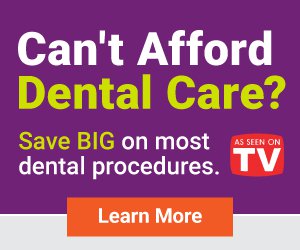How to Get Dental Care if You're on Low Income
Living with dental conditions can be uncomfortable and potentially dangerous. But if you’re on a low income, tending to your teeth may be a luxury you can’t afford. If you’re struggling to find affordable dental care as a low-income household, you’re not alone. 13% of adults in the US are in the same situation.
Luckily, there’s a way to get the dental care you need without breaking the bank. Discover ways to save money at the dentist, get cheap procedures, and take care of your dental health cheaply.
Why Are Dental Care Costs High?
Unlike regular doctors, different dentists offer varying prices for their services. They don’t have set rates, which is why dental care prices are high. Dentists set their fees according to where they practice and the techniques they use.
According to the American Dental Association, cost is the main reason people don’t visit the dentist. The improvements in treating and preventing oral problems have made it easy to treat complex dental issues more effectively. However, it has also added to dental care costs due to cost of improved dental products, and technology.
So, getting access to oral health care can be difficult if you don't have dental insurance. This is why it’s important to get creative about finding a way to access affordable oral care.
Average Costs of Dental Care Services
The cost of every dental procedure depends on how complex it is. For example, teeth whitening procedures will cost less than dental crowns or fillings.
If you have dental insurance coverage, however, you’ll be able to pay less than the actual costs. Below are a few dental procedures and a rough estimate of how much they cost:
- Dental Checkup: Routine checkups can prevent the development of painful–and costly– dental problems. Dental checks are not so expensive and can range from as low as $50 to $200.
- Dental Cleaning: You should get a professional dental cleaning twice a year. This can cost anywhere from $75-$200.
- Teeth Whitening: Teeth whitening is another standard dental procedure. In-office teeth whitening typically costs $650, but prices can jump to $1,000 or more, depending on the product used and your dentist's charges.
- Dental Fillings: Cavities are very common tooth problems. To get your cavities filled, you'll need between $75 and $200.
- Tooth Extraction: Depending on the type of anesthesia you require, a simple extraction typically costs between $75 and $200 per tooth. Removing impacted teeth carries a much higher price tag, ranging from $800 to $4,000.
- Gum Disease or Periodontitis Treatment: Depending on how severe the condition is, the cost of treating gum disease may range from $500 to $10,000. Regular dental prophylaxis often costs between $30 and $75, whereas periodontal scaling and root planing typically cost between $140 and $210.
- Dental Braces and Invisalign: Costs for dental braces range from $4,200 to $6,600. In some circumstances, they might cost up to $10,000, while costs for Invisalign range from $3,000 to $8,000.
- Dental Implants: Dental implants typically cost between $1,750 and $5,000
, and it covers the positioning of the post, abutment, and crown. Separate payments are usually required for the CT scan, X-ray, bone grafting, and tooth extraction.
What Do You Do if You Can't Afford Dental Care?
If you earn a low income and still want to maintain good oral health, there are various options for you to explore. All you have to do is look in the right direction, and you'll find a plan that suits your budget. Some of these options are:
Free Clinics
Community health clinics are another place to access low-cost dental care. The National Health Resources & Services Administration (HRSA) oversees these clinics to provide health services to low-income individuals and families.
Depending on the area, a community health clinic might provide discounted cleanings and other preventive dental services.
Dental Schools
Discounted dental services are provided by many dental programs at universities across the US. Additionally, low-cost, supervised dental care is made available via dental hygiene schools (American Dental Hygienists' Association). The general public is welcome to these on-campus clinics to receive care from dentistry students who need practical experience before graduating.
Frequently, consumers pay less than half the cost of restorative procedures, including cavity fillings (e.g., crowns, implants, and bridges). There are also discounted options for root canals, gum disease therapy, and a few oral operations.
Clinical Trials
You might be qualified to participate in a free clinical study if you have been identified as having a dental illness or condition that is costly to treat. However, not everyone is eligible to take part in these trials. Your age, medical history, and dental history all play a role in eligibility.
Clinical trials are risky even when they are free, and you are susceptible to experiencing side effects because many treatments and methods used in the studies aren't FDA-approved.
So, before the trial starts, they will inform you about potential side effects.
Get Affordable Dental Care On a Low Income
Every trip to the dentist comes with a high cost, but with Carefree Dental, you can get affordable dental care even without insurance.
You can save 15-50%* off your dental bill at participating providers with the Carefree Dental Card, per visit in most instances. For only $15.95/month for individuals and $19.95/month for families, this can mean great discounts on your dental treatments. As soon as you become a member, you can access over 262,000** available dental practice locations nationwide.
Sign up for Carefree Dental to get the best deal in dental for low-income households!
*Actual costs and savings vary by provider, service and geographical area.
**As of April 2020.
The Carefree Dental blog is not meant to be a substitute for professional medical advice, diagnosis, or treatment. The text and pictures within the content are intended for information purposes only. Readers should consult with a licensed dentist or healthcare professional before seeking treatment.
The Carefree Dental Card is not insurance and Carefree Dental is not an insurance provider.





